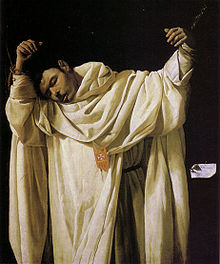 This two‐day international conference aims to bring together literary scholars, art historians, musicologists, and cultural historians to explore thinking about the experience as well as the social and political impact of compassion in early modern European culture. It seeks to combine two current approaches to the early modern passions: historical phenomenology on the one hand and the analysis of the role of compassion in the public sphere on the other. Sir Philip Sidney famously claimed political impact for the experience of compassion when he wrote that that the feelings of pity and fear aroused by tragedy could mollify the hearts of tyrants. Participants are invited to discuss which views on the experience of compassion existed in early modern Europe, and how the arousal of compassion in literature, theatres, art, sermons, music, and elsewhere was thought to impact ‐ or did impact ‐ the public sphere.
This two‐day international conference aims to bring together literary scholars, art historians, musicologists, and cultural historians to explore thinking about the experience as well as the social and political impact of compassion in early modern European culture. It seeks to combine two current approaches to the early modern passions: historical phenomenology on the one hand and the analysis of the role of compassion in the public sphere on the other. Sir Philip Sidney famously claimed political impact for the experience of compassion when he wrote that that the feelings of pity and fear aroused by tragedy could mollify the hearts of tyrants. Participants are invited to discuss which views on the experience of compassion existed in early modern Europe, and how the arousal of compassion in literature, theatres, art, sermons, music, and elsewhere was thought to impact ‐ or did impact ‐ the public sphere.
Keynote speakers:
- Katherine Ibbett (University College London)
- Bruce R. Smith (University of Southern California)
Proposals are invited for 20‐minute papers that explore questions such as:
- What did it feel like to experience compassion in the early modern period?
- What is the relation between passion and reason, body and mind, body and self in the experience of compassion?
- What is the relation between compassion and other passions in early modern culture?
- Which techniques existed for rousing compassion in art, sermons, or everyday encounters?
- How was the experience of compassion thought to impact the public sphere?
- Which historical sources can we use to explore the social roles of compassion?
- How did the terms used to refer to compassion shift in the early modern period, and how do these shifts relate to changes in the historical phenomenology and/or the social roles of compassion?
- How did compassion function to shape communities through shared suffering in different European countries?
- Where can we see early modern limits of compassion: who or which groups were (on the verge of being) excluded from compassion?
- How was the experience and practice of compassion impacted by cultural‐historical faultlines such as the Reformation, and how did these changes affect the social roles of compassion?
- How do early modern ideas on the experience and role of compassion contribute to a critical assessment of current theories of empathy, compassion and social emotions?
Please submit an abstract (c. 300 words) and a brief bio to the conference organizer, Kristine
Steenbergh, k.steenbergh@vu.nl , before 1 May 2015 .
One of the aims of the seminar is to submit a proposal for a volume on compassion in early modern culture with Palgrave’s book series Studies in the History of Emotions . The seminar is part of a research project on early modern compassion funded by the Netherlands Organisation for ScientiWic Research (NWO) and is co‐hosted by ACCESS, the Amsterdam Centre for Cross‐Disciplinary Emotion and Sensory Studies and the Faculty of Humanities of VU University, Amsterdam.
Compassion in Early Modern Culture (1550-1700)
VU University Amsterdam, The Netherlands
18-19 September, 2015

Leave a Reply
You must be logged in to post a comment.